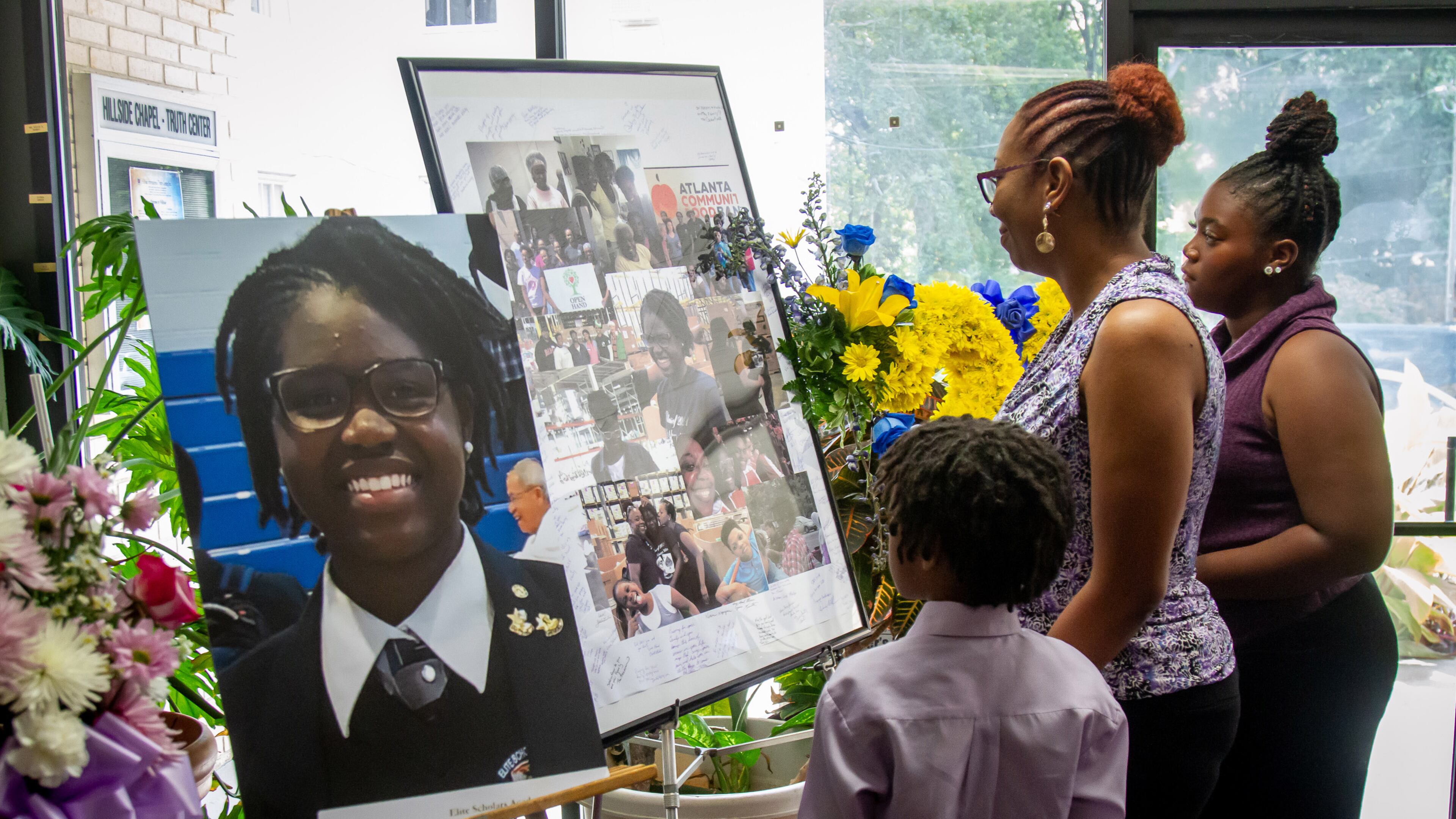Autopsy still incomplete for Clayton student who died in record heat

Four months after her passing, the family of a 16-year-old who died after running drills in record heat at a Clayton County school still doesn’t know the official cause of her death.
The Georgia Bureau of Investigation has not yet completed the autopsy of Imani Bell, to the frustration of her family who hope the findings will bring closure and help them determine whether to file a lawsuit against the south metro Atlanta school system.
Justin Miller, Imani’s cousin and a family spokesman, said GBI officials have told him it could take six to nine months before the autopsy is finished.
The examination of the Elite Scholar’s Academy student is more difficult because she was young, and heat-related issues don’t have specific symptoms that make an analysis easy, Miller said he was told. The GBI continues to examine and perform tests on tissue samples taken from Imani, he said.
“We’ve talked to [the GBI] and we know why it’s taking a long time,” he said “It’s not an anger thing, it’s a frustration thing.”
In an email to The Atlanta Journal-Constitution, GBI spokeswoman Nelly Miles said: “The autopsy results for Imani Bell are pending additional tests. The GBI Medical Examiner’s Office is conducting an in-depth investigation into the sudden death of a young individual. Obtaining the correct answer as opposed to a quick answer can take time as this is a complicated case.”
Imani collapsed and later died after running stairs during outdoor drills on Aug. 13, which reached a record high temperature of 100 degrees — with a feels-like temperature of 109 degrees about two hours before Bell collapsed, according to the National Weather Service.
A member of the school’s basketball team, Imani had earlier in the day complained to a coach that she was feeling ill from exercising, her family has said.
The School District of Clayton County declined to comment pending the possible litigation, a spokesman said. The Clayton District Attorney’s Office is investigating the matter, Miller said.
Dr. James Downs, a former medical examiner with the GBI who is not involved in the autopsy, said a number of issues can prolong cause-of-death determinations, including lab tests on dehydration, toxicology and genetics.
The tests also may inquire if connective tissue disorders masked underlying conditions that made Imani susceptible to the heat, according to Downs. In addition, calling in neural or cardiac pathologists — if the examiner wants expert consultations on the heart or brain — could add months to the process, Downs said.
It is common for medical examiners to work with tissue samples from the heart, brain and lungs in autopsy investigations, while also testing blood and urine, according to Downs.
Each exam can take months as investigators try to eliminate individual possible contributors to death, Downs said.
The death shocked Clayton and the school system added extra measures to keep students safe from the unprecedented heat this summer and fall, including canceling physical education classes, unstructured play and athletic practices on days when temperatures soared in the high 90s and heat indexes were above 100 degrees.
Miller, an attorney for Morgan & Morgan law firm which is representing the family, said he wants to know if the school district was following the rules when Imani was running drills — and whether it was using wet bulb globe standards, which consider cloud cover, wind speed and sun angle to determine if outdoor exercising is safe.
He said the family had a difficult Thanksgiving without Imani and he expects Christmas to be even rougher.
Miller added that having a cause of death will help put the pieces of the puzzle together, but he understands that might take a while.
“They have to incorporate all of the things that happened in conjunction with the heat-related symptoms to come up with a cause of death,” he said. “They have to look at medical records, the heat index, how long was she outside and what was her heart rate at the time.
“We want to get some questions answered that haven’t been answered.”
This past weekend, Clayton State University gave Imani a posthumous associates degree of arts in integrative studies. The teen enrolled at the school in fall 2018 as a dual student earning college credit while completing her high school requirements.
“Today, we are honored to present a posthumous degree to the family Imani Selah Bell,” the school said during Saturday’s graduation ceremonies. “In two semesters with us, Imani earned 25 college credits with an impressive 3.48 institutional GPA and was on pace to achieve her first collegiate credential prior to graduating from high school.”


